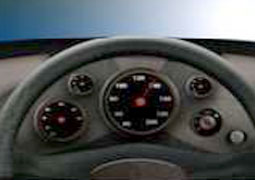No more moods: technology to cheer you up
 Computing intelligence is being woven into the fabric of everyday life. As everything gets smart, we will begin to discover that technology may work to actively brighten our mood and reduce our mental stress.
Computing intelligence is being woven into the fabric of everyday life. As everything gets smart, we will begin to discover that technology may work to actively brighten our mood and reduce our mental stress.
Imagine coming home from work in a rotten mood. But as you walk through the door your hi-fi instantly begins to play. But being smart, it analyses how you react. If you appear to relax, maybe nod along or hum, it automatically turns up the volume. If you show signs of boredom or stress, it switches tracks. It may even dim or brighten the lights or change their colour ― light has a big influence on our mood.
The sensing element of this so-called adaptive technology makes use of numerous psychophysiological characteristics ― physical responses of the body which indicate what is going on in a person’s head. These characteristics include their facial expression, skin conductance, general muscle tension, heart rate and heart rate variability. Sensors will also take measurements of the physical environment (e.g. ambient temperature) and the movement of the occupant being assessed (the subject).
One of the big tests for the concept is in the so-called reflective car. The idea behind the reflective vehicle is to overcome the potential shortcomings of a solitary drive providing a friendly co-driver. Its task is to observe the driver and take into account his or her emotional, cognitive and physical states, as well as the vehicular, driving and traffic conditions, in order to optimise the vehicle’s configuration and actively participate in the complex process of driving. For example, by changing the choice of music and lighting in the vehicle it can improve the driver’s mood, and by eliminating distractions to the driver (blocking incoming telephone calls) or adjusting the cabin temperature or making adjustments to the driver’s seat.
The reflective vehicle aims to make driving safer, more pleasant and less stressful - something we can all certainly appreciate.
The reflective vehicle work has been done under the REFLECT project (FP7-215893) funded by the European Commission within the 7th Framework Programme
This story and others showcasing EU-funded 'Future and emerging technologies' will appear in issue 9 of research*eu focus, due out April 2011 on CORDIS.



 Media Centre
Media Centre 





